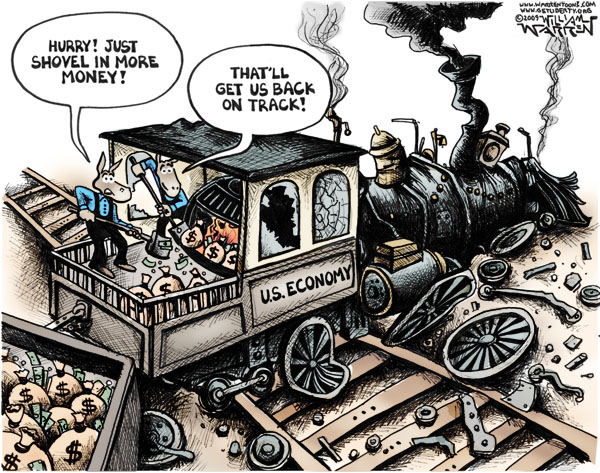Economic growth in the second quarter has come in at an inflation-adjusted 2.3 percent on an annualized basis, the Bureau of Economic Analysis reported on July 30.
Combined with the first quarter’s lousy 0.6 percent growth, the outlook for 2015 as a whole appears quite weak.
Just to reach 3 percent growth for the year, the economy would have to explode at more than 4.5 percent for the third and fourth quarters.
Sadly, it won’t.
In fact, the U.S. Gross Domestic Product (GDP) has not grown faster than 3 percent since 2005. If and when 2015 fails to break that ceiling, the U.S. will have completed what might be its worst decade of growth since the GDP was invented in 1934.
Read that again, 2006 to 2015 will be the slowest period of economic growth since 1930 to 1939, which clocked in at an average annual 1.33 percent growth. Already 2006 to 2014 comes in at an anemic 1.29 percent.
We’re in a depression, and have been for some time.
But the lack of robust growth is not at all surprising taking into consideration certain factors. And no, not cold weather.
Shifting demographics and relatively weaker demand as Baby Boomers retire and fewer Americans enter the workforce.
In the postwar era, the Baby Boom generation, as it came of age, contributed to a dramatic expansion of growth, of consumer and corporate credit, rising interest rates and soon inflation.
But, after the peak, we see slower growth, weak credit expansion, lower interest rates, and now even deflation.
In short, the working-age population is not expanding at the rate it once did, so it is unsurprising that the economy would follow suit.
The bad news is that jobs and incomes both tend to run alongside economic growth. So the less growth there is, the fewer jobs that will be created, and the flatter incomes will remain.
On the other hand, if inflation remains low and labor markets can stabilize around the slower rate of population growth, then a “good” number for GDP will likely not be as high as it was in, say, 1985. Something to keep in mind, since then slower growth might simply be a benign reading consistent with other data.
Still, a spike in unemployment will be harder to combat without robust growth. And being due for another recession — we average one every 6 to 7 years — we should find out pretty soon if our demographic decline turns out to be a fatal combination of slower growth and higher joblessness for the foreseeable future.
Robert Romano is the senior editor of Americans for Limited Government.







